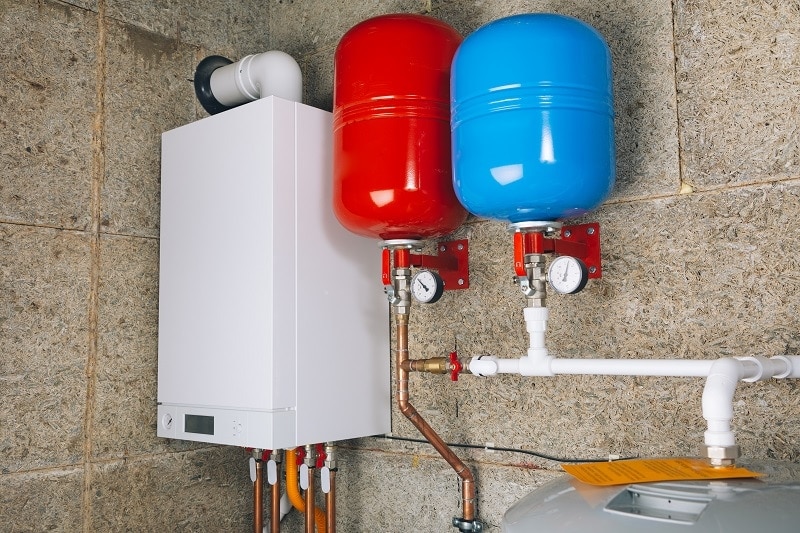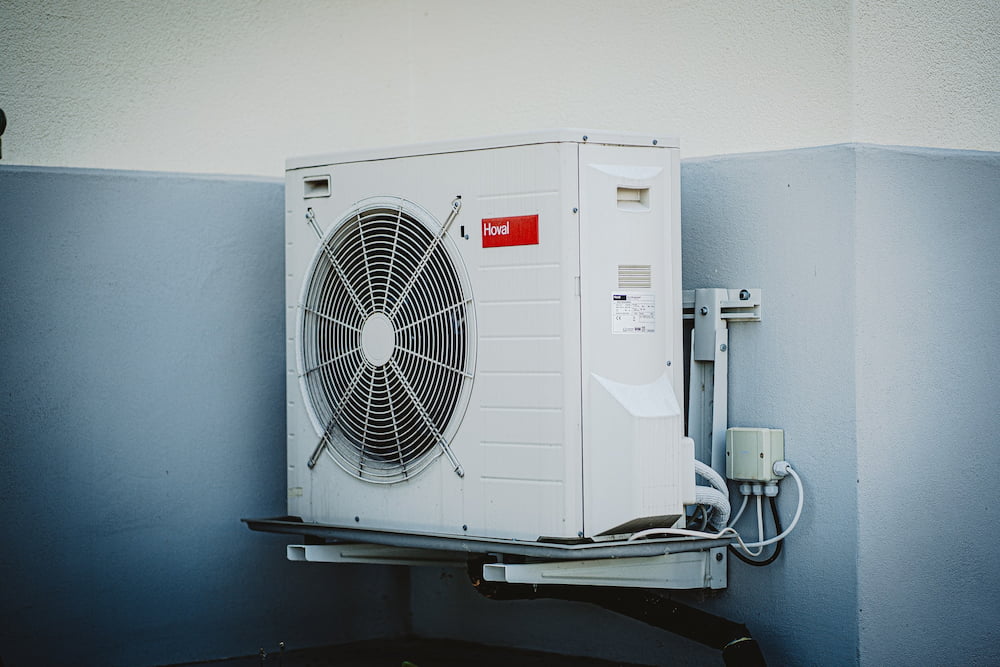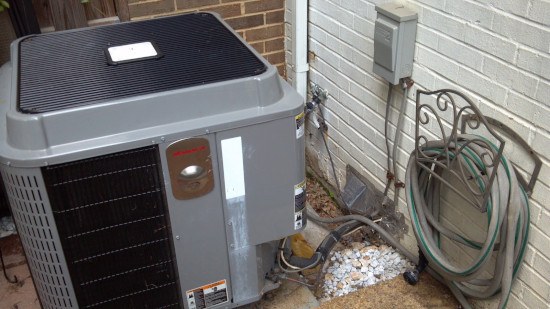How Many Watts Does a Heat Pump Use? With Comparison Chart
-
Greg Iacono
- Last updated:

An invaluable component of the heating and cooling system found in many homes is a heat pump that provides precious heat during the wintertime. Heat pumps can also cool your home in summer, eliminating the need for multiple systems. They are highly efficient, don’t use fossil fuels, and use considerably less energy than furnaces.
Heat pumps are powered by electricity, and because consumers today are watching their budget more than ever, many ask, how many watts a heat pump uses?
The answer is that the number of watts a particular heat pump uses is based on the specific heat pump, the unit’s Seasonal Energy Efficiency Rating (SEER), and its size (tonnage + BTU). Below is a simple chart to help you determine how many watts your heat pump should be using:
Wattage Comparison Chart
| Heat Pump Size | SEER 14 | SEER 16 | SEER 18 | SEER 20 | SEER 22 |
| 1 ton- 12,000 BTU | 1,020 W | 938 W | 877 W | 833 W | 802 W |
| 1.5 ton- 18,000 BTU | 1,531 W | 1,406 W | 1,316 W | 1,250 W | 1,203 W |
| 2 ton- 24,000 BTU | 2,041 W | 1,875 W | 1,754 W | 1,667 W | 1,604 W |
| 2.5 ton- 30,000 BTU | 2,551 W | 2,344 W | 2,193 W | 2,003 W | 2,005 W |
| 3 ton- 36,000 BTU | 3,061 W | 2,813 W | 2,632 W | 2,500 W | 2,406 W |
| 3.5 ton- 42,000 BTU | 3,571 W | 3,281 W | 3,070 W | 2,917 W | 2,807 W |
| 4 ton- 48,000 BTU | 4,082 W | 3,750 W | 3,509 W | 3,333 W | 3,209 W |
| 4.5 ton- 54,000 BTU | 4,592 W | 4,219 W | 3,947 W | 3,750 W | 3,610 W |
| 5 ton- 60,000 BTU | 5,102 W | 4,688 W | 4,386 W | 4,167 W | 4,011 W |
How Much Wattage Does a Heat Pump Use?
Depending on the size and BTUs of your heat pump, it will use between 800 watts (0,800 kWh) to 5,100 watts (5,100 kWh) of electrical power per hour. The larger the heat pump, the more electricity it will use. Also, as we mentioned earlier, the SEER is one of the main factors determining how much electricity your heat pump uses.
The higher the SEER, the less electricity the heat pump will use. Lastly, a ground-source heat pump typically uses less energy than an air-source heat pump.

Do Heat Pumps Use a Lot of Power?
Unlike conventional heating systems, a heat pump uses a significantly lower amount of power (electricity) to heat a house. That’s because heat pumps are highly efficient. For example, today’s heat pumps use electrical energy to create three to four times that amount of thermal (heat) energy, and they produce more energy than they use.
Compare that to a conventional heating system that wastes energy, and the difference becomes crystal clear. In short, heat pumps are energy-efficient and will usually lower your energy bills.
What Is the Most Efficient Method To Run a Heat Pump?
HVAC experts will tell you that the most efficient way to run a heat pump is to adjust it to a comfortable temperature and leave it at that temp all winter. Furthermore, they advise that adjusting the temperature, especially at night, won’t save the average homeowner any extra money. Below are a few other tips that will save you money and help you run your heat pump efficiently:
- Leave your heat pump at a comfortable temperature.
- If you have a boiler or furnace, use your heat pump first to save money.
- Don’t use “Auto” mode. Instead, use “Heat” mode in winter and “Cool” mode in summer (You can also use “Dry” or “Fan” in summer).
- Use “Auto Fan” first. If that setting doesn’t spread the heat evenly, set the fan to a low speed and work your way up until it’s perfect for your needs.
- Direct the airflow of your heat pump towards the biggest open space in the in your home.
- Clean the outside unit regularly to prevent leaf and debris buildup.
- All heat pumps have dust filters which should be cleaned at least once a year, but they should be cleaned more often in dusty, dry areas.
- Get your heat pump professionally serviced and followthe manufacturer’s recommendations.
Can You Run a Heat Pump All Night?
There is a debate in the heat pump industry about whether you can let the pumps run all night. Some say that it’s the best way to get the most efficiency and heat. Others, however, say that you should turn heat pumps down at night to save energy.
From the data we’ve researched, setting your heat pump at a comfortable temperature and leaving it there 24/7 is the most practical method. This allows your heat pump to reach its peak efficiency
Also, remember that even if the heat pump is running, the compressor isn’t always running, and thus it’s not using electricity. The fan will take over when the compressor turns itself off. Also, heat pumps have specialized gauges, so the compressor only runs when needed. If your home is well insulated, you can let your heat pump run all night. You may have wondered, do heat pumps work in cold weather? Yes, they work in cold weather as long as the pump is installed and maintained correctly.
Is It Cheaper To Leave a Heat Pump On all Day?
Most experts agree that, in a well-insulated home, it is cheaper to leave your heat pump on all day. Again, as we mentioned earlier, heat pumps need to be set at a steady temperature to reach peak efficiency.
Many homeowners turn their heat pump down in the morning, back up again when they get home, and down again before bedtime. This constant increase and decrease in temps defeat a heat pump’s purpose and reduce its efficiency significantly.
 Final Thoughts
Final Thoughts
The number of watts your heat pump uses is based on its size, SEER, and BTUs, so it’s best to use our chart (above) to determine how many watts your particular unit uses. That being said, heat pumps are very efficient, use less electrical energy, and, in most cases, will save you money over a conventional heating and cooling system.
Experts recommend leaving heat pumps on a comfortable temp 24/7 rather than constantly turning them up and down. Leaving the thermostat alone is the best way to use the fewest watts of electrical power.
Featured Image Credit: nikkytok, shutterstock
Contents

